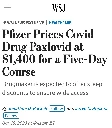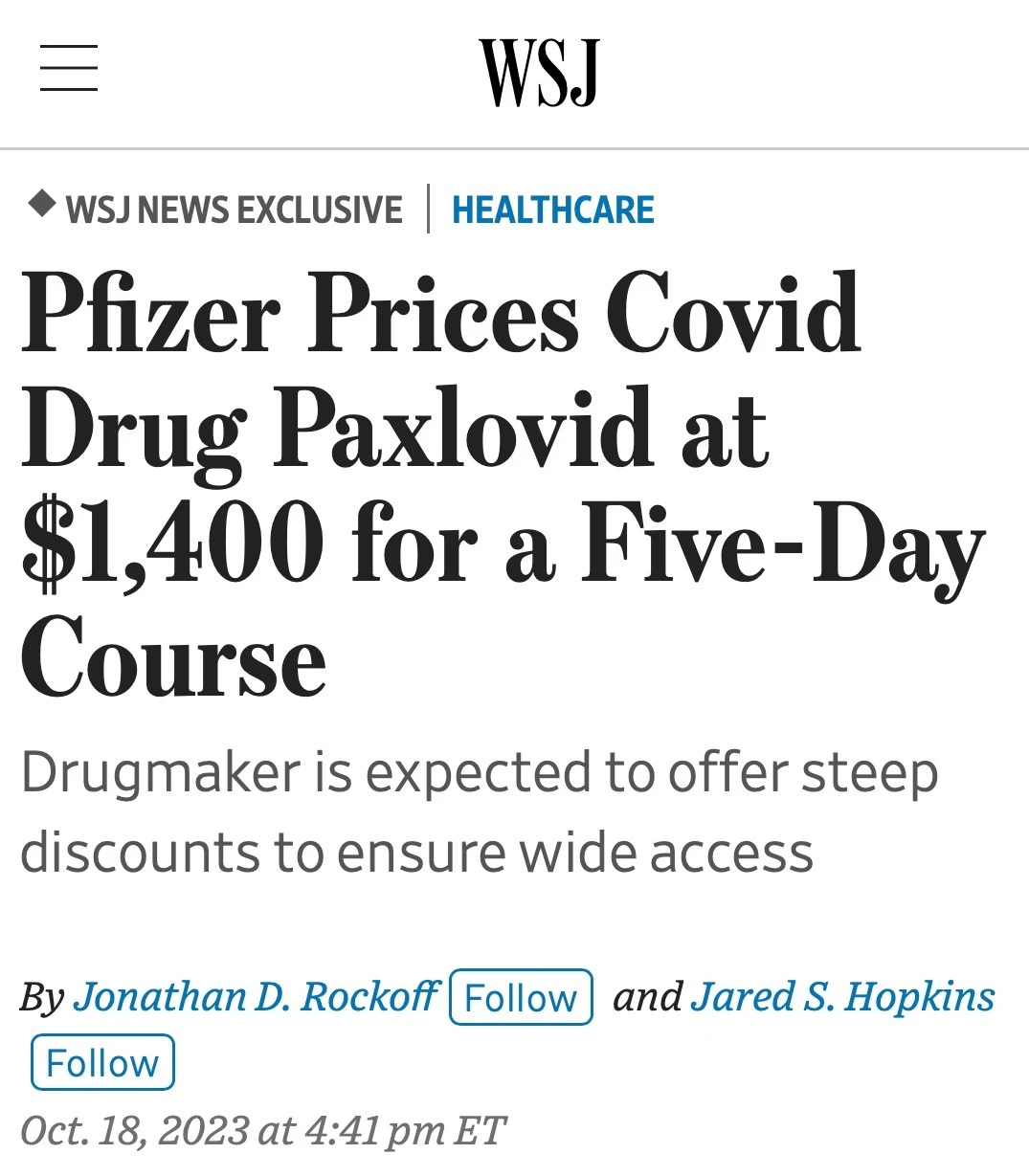Pfizer says it will price Covid treatment Paxlovid at nearly $1,400 for a five-day course, which researchers estimate only costs Pfizer $13 to produce. That's a 10,000%+ markup. Shameful.
Pfizer says it will price Covid treatment Paxlovid at nearly $1,400 for a five-day course, which researchers estimate only costs Pfizer $13 to produce. That's a 10,000%+ markup. Shameful.

Dr. Lucky Tran :verified: (@luckytran@med-mastodon.com)
